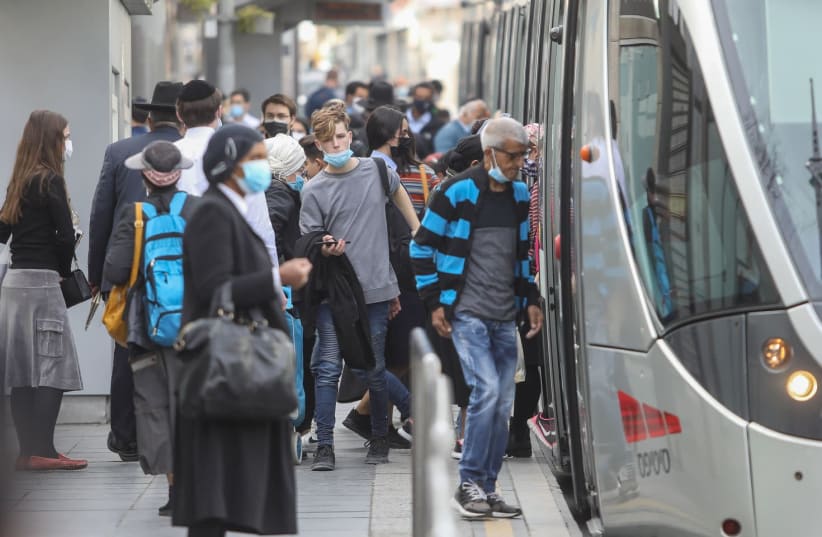Israel is working to set up a rapid testing system to allow those who are not vaccinated against the coronavirus, including children, to receive a green pass, Public Health Services head Dr. Sharon Alroy-Preis told the Knesset Law and Constitution Committee.
We currently have thousands of new cases every day, if we flood the system with tests so that people can enter places, it will crash,” Alroy-Preis said. “While this is not possible at this stage, we are working as hard as we can to enable rapid tests.”
The official added that five companies offering the service have already received regulatory approval and the Health Ministry is going to propose an outline for venues and businesses to welcome customers who activate a green pass after purchasing and undergoing a test.
At the moment, gyms, hotels, cultural and sports events are reserved for green pass holders, and starting from Sunday also restaurants and event halls are going to resume activities under the green pass system.
We do not want to force people to get vaccinated by manipulation and we do want not to separate families,” Alroy-Preis explained.
Also on Wednesday, coronavirus commissioner Prof. Nachman Ash said that Israel might need to enter a fourth lockdown before the general election on March 23.
“We will have to see the data in the next couple of weeks. It’s definitely a possibility that we will recommend a fourth lockdown before the election,” he said in an interview on 103FM radio, adding that Tuesday some 4,200 people were diagnosed with the virus in Israel.
Meanwhile, on Wednesday the R (reproduction) rate – which measures the average number of people whom each person carrying the coronavirus will infect – rose once again to 1, as the country prepared for the third phase of the exit strategy from the current lockdown.
While the new round of openings is consistent with the timeline suggested by the Health Ministry at the end of January, health officials have expressed concern over the government’s choice to move forward with the full plan, in light of numbers that they do not find as reassuring as they would have hoped. Some have indicated that the decisions have been influenced by political considerations for the upcoming March 23 elections.
“The closer we get to the election, the harder it is to maintain professional management,” Tomer Lotan, a senior official in the ministry told Army Radio.
After dropping for several days, the R rate started to climb up again at the end of last week, standing at 1 on Monday, down to 0.97 on Tuesday, and then rising again on Wednesday.
The situation is especially dire in the Arab sector, where the R stood at 1.12. The sector is also the one with the lowest vaccination rate – with just 67% of people over 50 inoculated and 31% of those of all ages. In the general population, the rates stand at 89% and 58%, respectively.
Maintaining the R rate at 1 or below is one of the criteria that the ministry has set as a condition for relaxing restrictions, together with the number of people fully vaccinated and the number of patients in serious conditions. These latter figures have been steadily improving.
According to a ministry report, as of Wednesday, some 4.8 million Israelis had been vaccinated with one dose and 3.5 million with both.
The number of patients in serious condition dropped to 717, some 224 of whom were on ventilators.
Another 4,348 new coronavirus infections were identified in the previous 24 hours, with 4.8% of the 91,000 tests returning a positive result.
The death toll rose to 5,802.
Also on Wednesday, the ministry published the new scores under the traffic light program which regulates which cities are allowed to open schools.
Some localities, including Dimona, Lod, Tiberias, and Beitar Illit will need to resume remote learning starting from Sunday due to an increase in morbidity. Among the towns where students will be able to go back to school is Kiryat Malachi.
When the new scores come into effect next week, grades 7-10 will also return in person in green, yellow and light orange cities where the vaccination rate of people over 50 is above 70%.
Of 2.4 million students, an additional 500,000 will return to school for the first time in months, bringing the total number of students learning in person to 1.8 million. Some 400,000 will remain at home.
